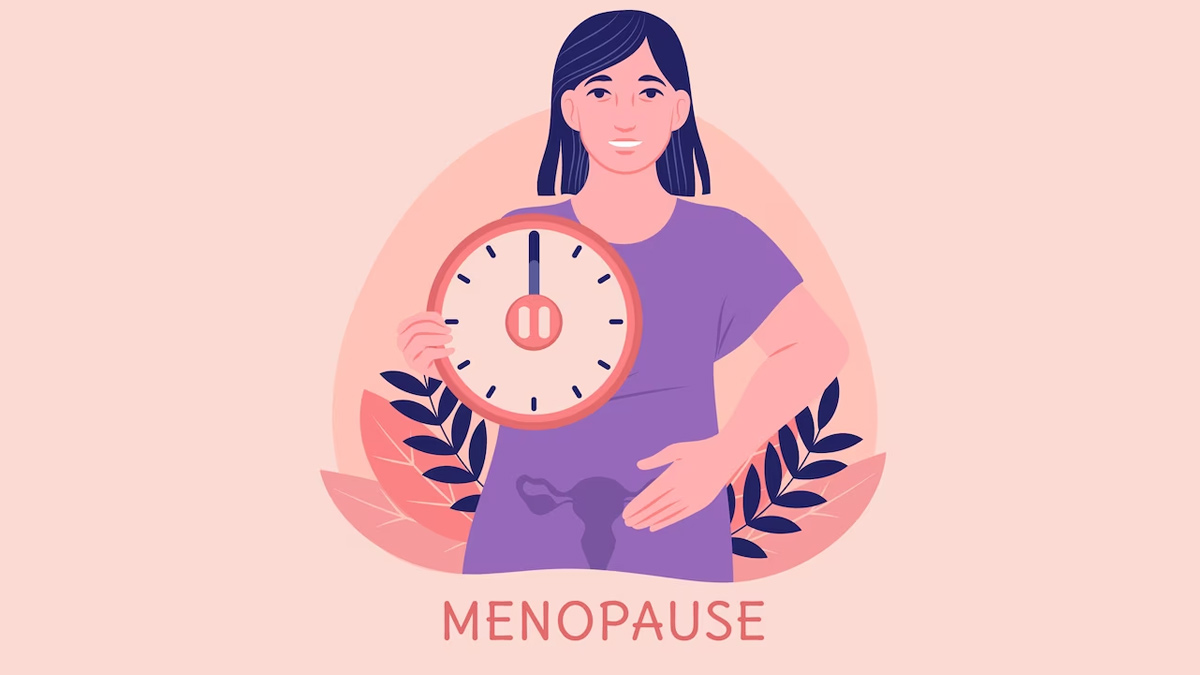
Menopause, a natural biological process that marks the end of a woman's menstrual cycle, is a significant stage that typically occurs in cisgender women (people whose gender identity matches the sex they were assigned at birth). However, it is also relevant for transgender and non-binary individuals who were assigned female at birth. They can experience menopausal symptoms if they have undergone hormone therapy as part of their gender transition. Understanding menopause in the context of transgender and non-binary experiences is essential for providing inclusive and affirming healthcare. On this World Menopause Day, which falls on October 18 every year, we spoke to our experts to understand menopause for trans or non-binary.
Table of Content:-
According to the National Institute on Aging (NIA), menopause signifies the moment when 12 months have passed since a woman's last menstrual cycle. The period leading up to the cessation of menstruation is called the menopausal transition, also known as perimenopause.

Effects of Menopause on Transgender Women
Dr Hira Mardi, Consultant, Obstetrics and Gynaecology, Manipal Hospital, Varthur and Whitefield, said, “For transgender women who have undergone gender-affirming hormone therapy, the effects on menopause can vary. Oestrogen therapy may suppress testosterone production and induce symptoms similar to menopause, such as hot flashes, mood swings, and changes in menstrual cycles. These symptoms can be managed through hormone adjustments and other supportive measures.”
She added, “Transgender women must work closely with their healthcare provider who is knowledgeable about transgender health to monitor their hormonal levels, address symptoms, and ensure overall well-being during this phase.”
Also Read: Menopause Causes Weight Gain And More: Expert Debunks Myths About Menopause

Effects of Menopause on Transgender Men and Non-binary Individuals
Dr Mardi said, “For transgender men and non-binary individuals assigned female at birth, the effects of menopause will depend on various factors, such as the use of hormone therapy, surgical interventions (hysterectomy), and individual physiological responses.”
She added, “Some individuals may experience a cessation of menstrual cycles and related symptoms, while others may continue to have irregular bleeding patterns or other hormonal fluctuations. As many transgender people have undergone Hormonal Replacement Therapy (HRT) there are certain high chances of cardiovascular disease and osteoporosis.”
Also Read: Mental And Physical Challenges of Transgender People Featuring Rudrani Chettri And Krishna Singh
Menopausal Symptoms

Sanjith Shetty, CEO and Founder, Miror, said, “Menopausal symptoms can be both physical and emotional, including hot flashes, mood swings, sleep disturbances, changes in sexual behaviour, etc. These symptoms may be experienced by trans individuals who are on hormone therapy and can be managed with various treatments, including HRT."
Dr Mardi added, “Menopause may involve navigating shifts in body image, gender identity, and self-perception. Accessing mental health support from professionals who are knowledgeable about gender identity issues can be invaluable during this time.”
Self-Care During Menopause

Dr Mardi said, “Self-care is crucial during menopause, regardless of gender identity.” He listed the measures that you should follow:
- Maintain a healthy lifestyle
- Engage in regular exercise
- Practising stress management techniques
- Prioritise good sleep habits
- Seek emotional support from friends, loved ones, or support groups to share experiences
- Seek advice and find comfort in a community that understands the unique challenges faced by transgender and non-binary individuals during menopause.
Bottomline
Dr Mardi concluded, “It is important to approach menopause in an inclusive and affirming manner, ensuring that healthcare providers are knowledgeable about the specific needs and experiences of transgender and non-binary individuals. By providing comprehensive care and support, we can help transgender and non-binary individuals navigate menopause with dignity and optimal well-being.”
[Disclaimer: This article contains information provided by a registered healthcare professional and is for informational purposes only. Hence, we advise you to consult your expert if you have any queries or face complications.]
Also watch this video
How we keep this article up to date:
We work with experts and keep a close eye on the latest in health and wellness. Whenever there is a new research or helpful information, we update our articles with accurate and useful advice.
Current Version